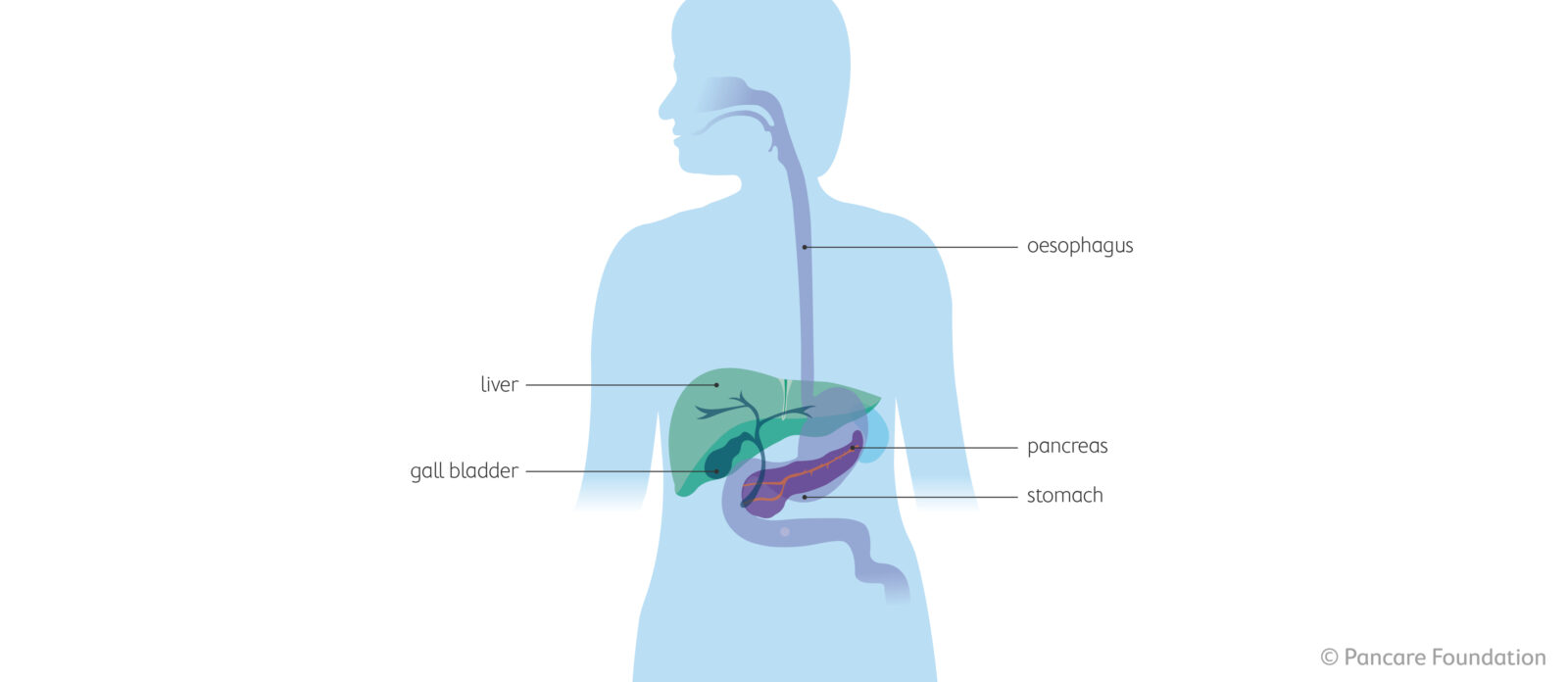What is oesophageal cancer?
Oesophageal cancer is a disease in which cancerous cells arise from the tissues of the oesophagus. These eventually grow and obstruct the oesophagus.
There are two main types of oesophageal cancer: adenocarcinoma and squamous cell carcinoma.
- Adenocarcinoma is cancer that begins in cells that produce and release mucus and other fluids most often in the lower part of the oesophagus near the stomach.
- Squamous cell carcinoma is cancer that begins in flat cells lining the oesophagus.
A range of tests and scans are available to diagnose oesophageal cancer.
About the oesophagus
The oesophagus is part of the digestive system. The oesophagus is a muscular tube, about 25cm long, with a sphincter (valve) at each end. Its function is to transport food and fluid, after being swallowed, from the mouth to the stomach. No absorption of nutrients takes place in the oesophagus. A mouthful of food which has been chewed and swallowed is called a bolus, this is then propelled from the throat into the oesophagus and down into the stomach to be digested.

Read more:
> Oesophageal cancer symptoms and risk factors






